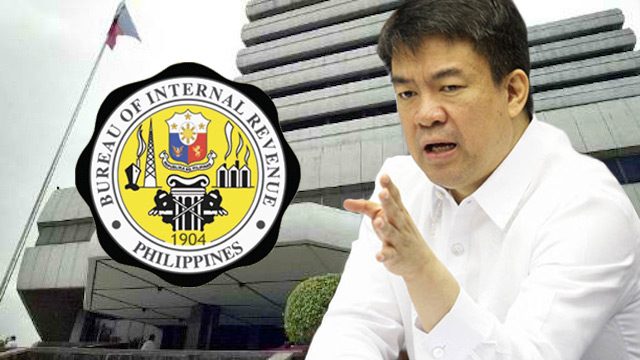SUMMARY
This is AI generated summarization, which may have errors. For context, always refer to the full article.

MANILA, Philippines – Senate President Aquilino “Koko” Pimentel III has filed a bill seeking a one-time amnesty on estate taxes, or those imposed on the net value of a deceased person’s estate before distribution to heirs, to ease the burden of families.
Senate Bill 293, the Senate President said, will be a reasonable tax relief for middle-class Filipinos. At the same time, he said the bill will encourage payment of estate taxes, as families will no longer hide from government due to huge penalties and surcharges.
“This is a reasonable tax relief especially to the middle class Filipino families who are mostly wage earners, salaried employees. or overseas Filipino workers,” he said.
Pimentel said families hardly prioritize financial obligations in times of death of a family member. Such unfortunate phase, he said, is “usually marked by prolonged grief that any mention of estate tax obligation is not observed or practiced.”
To prove his point, Pimentel cited data from the Bureau of Internal Revenue, and said there is a wide mismatch between the number of estate tax returns filed in the past years and the total number of reported deaths.
To ‘give people a chance’
“This bill will give our people a chance to settle their estate tax obligations through a program that will limit their ability to the unpaid basic estate tax and waive the accumulated fines due to late filing or late payment, or both,” he said.
Under the bill, taxpayers may avail of a one-time tax amnesty on estate taxes, including penalties and interests that may have remained unpaid as of December 31, 2015.
If the measure is passed into law, those who have availed of the tax relief shall not be held liable for the earlier non-payment of taxes and other charges.
The bill, however, excludes people with pending cases before the Presidential Commission on Good Government and the anti-graft court Sandiganbayan involving violations of the Anti-Money Laundering Act.
Also excluded are those with pending criminal cases for tax evasion, fraud and illegal exactions and transactions, and malversation of public funds and property. – Rappler.com
Add a comment
How does this make you feel?
There are no comments yet. Add your comment to start the conversation.